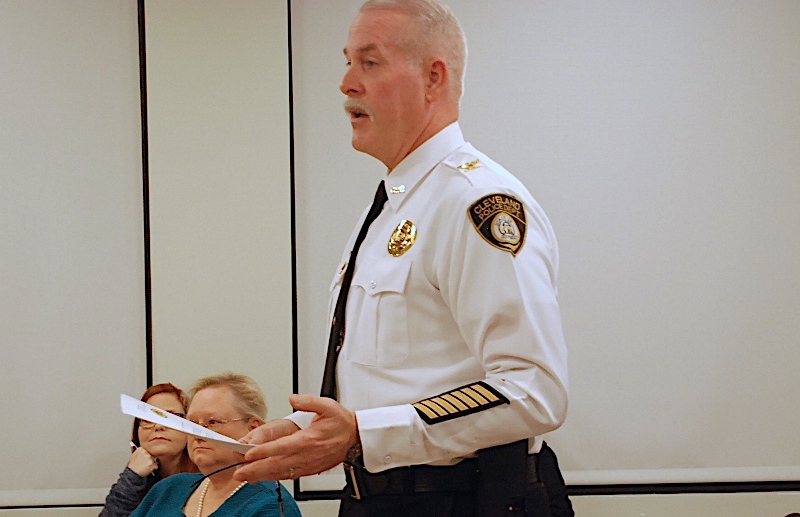(GA Recorder) — Gov. Brian Kemp has followed through on his threat to sue the Biden administration over its recent decision to reject major elements of the governor’s health care plan.
Kemp argues his plan to slightly expand Medicaid should be allowed to move forward as originally envisioned since it was approved by the Trump administration in late 2020.
Under President Joe Biden, though, federal officials have frowned on provisions that would require newly eligible Medicaid participants to complete 80 hours of work, school or other qualifying activity every month and pay premiums.
The governor’s spokeswoman said last month Kemp planned to challenge the decision. His office announced in a press release Friday afternoon that the lawsuit had been filed in the United State District Court for the Southern District of Georgia in Brunswick. The complaint names the Centers for Medicare and Medicaid Services, the U.S. Department of Health and Human Services and others as defendants.
“This case is about whether the federal government must keep its promises,” reads the complaint, saying the program had now morphed into “significant Medicaid expansion in Georgia without condition.”
The state Department of Community Health, which is one of the plaintiffs, has stopped implementing the program while the legal challenge is being considered.
Under Kemp’s original proposal, about 50,000 people would have gained health care coverage through Medicaid. When the Biden administration withdrew approval for parts of the governor’s plan, the feds emphasized the pandemic’s long-term impact on the poor.
State Republicans have dismissed the shift as a partisan political maneuver.
“Simply put, the Biden administration is obstructing our ability to implement innovative healthcare solutions for more than 50,000 hardworking Georgia families rather than rely on a one-size-fits-none broken system,” Kemp said in a statement Friday. “They have attempted an unlawful regulatory bait and switch, and it is clear that their decision is not being driven by policy – rather politics – as they attempt to force their top-down agenda on the American people.”
Democrats have criticized his plan as being more expensive than full Medicaid expansion under the Affordable Care Act, which would put an insurance card in the pocket of about 500,000 people.
The Democratic Party of Georgia criticized Kemp and Attorney General Chris Carr for continuing to defend the more limited health care plan.
“It’s bad enough that Brian Kemp refuses to implement full Medicaid expansion – now, he and his henchman, Chris Carr, are wasting taxpayer dollars fighting for a restrictive health care proposal that leaves the mentally ill, Georgians with disabilities, and those caring for sick relatives behind,” the party’s spokeswoman, Rebecca Galanti, said Friday. “Georgians deserve leaders who put people before politics, and voters will hold Brian Kemp, Chris Carr, and Georgia Republicans accountable at the ballot box for their continued insistence on withholding health care from half a million Georgians.”
In Washington, Democrats have carved out new incentives for the dozen holdout states like Georgia that have not opened the program to more poor adults without insurance. Congressional Democrats have also proposed a federal work-around program, although those plans have stalled in the Senate.
“I’ll say it again. Georgia’s Medicaid work requirements are bad policy that would cost taxpayers more dollars while covering fewer people than full Medicaid expansion,” Georgia Congresswoman Carolyn Bourdeaux said in a statement. “It’s time to cut the politics and expand Medicaid to the more than 600,000 Georgians who qualify. Now more than ever, we must ensure everyone has access to affordable, quality healthcare.”
Republican lawmakers here publicly support the governor’s quest for what they say is a solution tailored for Georgia. Sen. Larry Walker, a Perry Republican, questioned whether Georgia’s health care system could even support a half million people on Medicaid. His comments were made during a panel discussion at the Georgia Budget and Polity Institute’s conference Friday, held shortly before the lawsuit was filed.
But Walker also defended the philosophy behind Kemp’s proposal.
“I don’t think you’re doing people, the citizens of Georgia, a service if you don’t show them and have a pathway for them to move off of Medicaid and off of welfare programs and off of this Great Society deal. I just don’t think you’re doing them a favor,” he said. “There are jobs out there. We’ve got to give them a hand-up and quit trying to give a handout for everything that people think they need.
“I thought the Georgia way was a very clever and well thought out way to let’s help the people that need … but let’s don’t make them dependent on government forever. Let’s give them a pathway out of that dependency,” Walker said.
State Rep. Sam Park, a Lawrenceville Democrat, pushed back on the view of Medicaid coverage as a “handout” when the opportunity for more people to seek preventative health care could reduce costs across the board in the long run.
“This is not a political move. This was policy,” Park said of the Biden administration’s decision to withdraw approval for parts of Kemp’s Medicaid plan.

















Habersham commission to enforce rules on public comment, Palmer says
The Habersham County Board of Commissioners announced Thursday that moving forward, they would strictly enforce their rules and limitations to public comment.
“It is the firm belief of the Habersham County Board of Commissioners that transparency and public service remain a top priority in all public meetings,” Commission Chairman Bruce Palmer read from a statement during the meeting. “It is for this reason that the commission affords members of the public the privilege of sharing their thoughts and concerns in the form of public comment during the commission meetings. In recent months, it has become apparent that the rules surrounding public comments need clarification so that this privilege remains a tool for progress and productive discussion.”
The statement comes on the heels of attorney Doug McDonald calling on County Manager Alicia Vaughn to publicly state why she abruptly resigned from her job as Catoosa County manager during public comment.
“Since county staff members are unable to participate in public comments, complaints regarding individual members of the county staff should be investigated through the proper internal channels, not through a public forum in which they are unable to provide rebuttal or defense to their character,” Palmer said.
McDonald has made many controversial public comments criticizing Habersham County government during public comment in the past, and after Thursday’s announcement, came forward to comment.
“The matter that was read into the record tonight . . . is very dangerous in the sense that it is unconstitutional,” McDonald said. “I have spent 50 years of my life as a lawyer studying the law and specializing in constitutional law, and I’m here to tell you tonight that a content-based boundary document that prohibits the things that this document read tonight attempts to prohibit is unconstitutional.”
Palmer says he consulted with Georgia’s County Association and Habersham County Attorney Donnie Hunt, and that they advised that the rules were not unconstitutional.
“Citizens have an enormous United States constitutional right of freedom of speech, protection [of] directing speech about public issues to those who govern the county, and who use our county money and spend our tax dollars,” McDonald said. “Free speech exists during public comment times. It is the only time the public can come and speak to five county commissioners at one time.”
Palmer says that public comment is not a required portion of commission meetings, and limiting it can’t be unconstitutional.
“Public comments are not a required portion [of meetings], so if they’re not required, how can it be unconstitutional to kind of limit [them]?” Palmer told Now Habersham. “Making slanderous statements technically is illegal, and our rules have been in effect.”
The HCBOC Rules of Procedure were last amended on March 15, 2021, to include limitations to public comment, and include barring an individual from public comment due to “improper conduct.” At the beginning of the public comment portion of commission meetings, speakers have been told for years that “derogatory” and “offensive” statements are not allowed.
McDonald argues that language such as a “derogatory statement” and “an offensive statement” do not have clear definitions and need to be clarified.
“The government cannot silence speakers at public comment times, if a county employee gives up their right to come and speak when they become a county employee, that should not prohibit taxpayers, citizens, from being able to talk about them in a public meeting,” McDonald said.
The rules also allow for barring citizens from further public comment if their conduct is “deemed out of order” from the commission. Palmer says these rules will be enforced moving forward.
a. A person may be barred from further speaking before the Commission in that meeting if his/her conduct is deemed out of order;
b. A person, once barred for improper conduct, shall not be permitted to continue or again address the Commission in that meeting unless a majority vote of the Commission allows;
c. In the event the speaker thus barred fails to obey the ruling, the Chair may take such action as is deemed appropriate, including the removal of such person from the assembly;
d. The Chairman may bar a person from addressing Commission meetings for up to sixty (60) days for improper conduct;
e. A person barred by the Commission for this period may request a hearing, by written request, to the Chair stating the reason(s) for a reversal of the decision.
Palmer says that those rules have not been amended since last year, and that the announcement he read only further clarified the role of the county manager and board of commissioners.
“I did put that statement in there just to clarify to our public what we’re responsible for,” Palmer said. “A lot of people have the misinterpretation that . . . ‘I go talk to them [commissioners] and they’re going to fix my problem, they’re responsible for everything,’ and it’s really not that way. And that was voted on by the citizens in Habersham county in the past when we went to a manager form of government with five commissioners.”